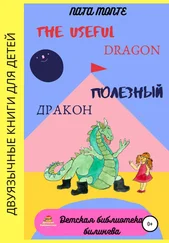John Sweeney - The Useful Idiot
Здесь есть возможность читать онлайн «John Sweeney - The Useful Idiot» весь текст электронной книги совершенно бесплатно (целиком полную версию без сокращений). В некоторых случаях можно слушать аудио, скачать через торрент в формате fb2 и присутствует краткое содержание. Город: London, Год выпуска: 2020, Издательство: Silvertail Books, Жанр: Исторический детектив, Триллер, на английском языке. Описание произведения, (предисловие) а так же отзывы посетителей доступны на портале библиотеки ЛибКат.
- Название:The Useful Idiot
- Автор:
- Издательство:Silvertail Books
- Жанр:
- Год:2020
- Город:London
- ISBN:нет данных
- Рейтинг книги:4 / 5. Голосов: 1
-
Избранное:Добавить в избранное
- Отзывы:
-
Ваша оценка:
- 80
- 1
- 2
- 3
- 4
- 5
The Useful Idiot: краткое содержание, описание и аннотация
Предлагаем к чтению аннотацию, описание, краткое содержание или предисловие (зависит от того, что написал сам автор книги «The Useful Idiot»). Если вы не нашли необходимую информацию о книге — напишите в комментариях, мы постараемся отыскать её.
* * *
The Useful Idiot — читать онлайн бесплатно полную книгу (весь текст) целиком
Ниже представлен текст книги, разбитый по страницам. Система сохранения места последней прочитанной страницы, позволяет с удобством читать онлайн бесплатно книгу «The Useful Idiot», без необходимости каждый раз заново искать на чём Вы остановились. Поставьте закладку, и сможете в любой момент перейти на страницу, на которой закончили чтение.
Интервал:
Закладка:
They got to the lift, but this time, almost as blind as a freshly-born mole, Jones couldn’t make out which button was punched. His stomach lurched as they went down. He counted the floors they passed. Six in all. They were at minus-two, the under basement. Down here, the Lubyanka was unheated and his breath ballooned in front of his face. In his shirt, he began to shiver. They pushed him along a dark, dank corridor. Then, stopping in front of a cell, they unlocked the door, unlocked his handcuffs and thrust him forward. The cell door clanged shut behind him and he heard the key turn in the lock.
It was the stench that hit him first. The only illumination came from a slit of light underneath the door. As his eyes grew accustomed to the darkness, he made out a dark hole in the far corner. That would be the source of the stink. He sat down with his back against the door and closed his eyes. Not so far away, a scream, intense, animal, pierced the silence.
The scream grew louder and louder; then it lost its force, and soon the Lubyanka basement returned to silence.
Chapter Fifteen
Time had no meaning down here. With his watch gone, no light worthy of the name, Jones was entombed. Hours treacled by. He was broken, finished and he tasted salt as tears ran down his cheeks.
Then he remembered that last kiss from Evgenia and her warning that their roof had run out, and he yearned for her sweetness and beauty and savoured the memory, etched in his mind’s eye, of that last dance with her, while Winnie sang so beautifully. He remembered, too, the moments after Evgenia had fled, all of them waiting for the knock on the door – and Winnie singing the song that the Wobblies who’d ended up trapped in Stalin’s enormous prison camp so loved. Here in the darkness, he started to sing it too.
“When Israel was in Egypt’s land…”
The silence of the basement was not only broken by his singing. There was something else: footfalls coming his way. They stopped outside his cell and a key turned in the lock. Jones stood up and blinked in the harsh light from the corridor. Lintz and the Uzbek guard were standing there. The Uzbek stepped behind him and snapped handcuffs onto his wrists. Then he followed them out of the cell into the corridor, back towards the lift.
Robbed of his glasses Jones couldn’t make out anything with clarity but coming the other way was a group, two dark blobs either side, a white blob in the middle, a prisoner escorted by two guards. The two groups closed within a few feet of each other and that was when Jones could make out detail. The prisoner was dressed in a white shirt above the waist; below he was naked, his groin dripping with blood. Only when they were virtually face to face did he recognise the prisoner. As he passed Jones, Attercliffe spat in his face.
Jones was too shocked to react and couldn’t wipe his face because of his handcuffs. This time, when they got into the service lift, they ascended seven floors. Lintz took Jones to a large bathroom, airy and spacious. Here his handcuffs were unlocked and removed and Lintz made his exit.
Alone in the bathroom, Jones washed Attercliffe’s spittle off his face – but the memory of it stayed with him, and always would. On a chair was the box containing his possessions, on some hooks his jacket, overcoat, belt, tie, hat and a large towel. Jones studied himself in the bathroom mirror and realised that both his hands were shaking uncontrollably.
“Get a grip man,” he said out loud. The Cheka were playing with him, of course. But to see Attercliffe in that hideous state had unmanned him, far more than the spell in the under-basement. The sight of the poor man, untouched from the waist up, tortured from the waist down, explained the confessions in the show trial succinctly.
Jones studied himself in the mirror and said out loud, “Behold, the useful idiot.”
Drying himself, he dressed and went to open the door of the bathroom. It was locked. He knocked, once, and almost instantly it was opened by Yacob, Lintz and the Uzbek standing a few steps behind him. They took him along a wide corridor with a wooden parquet to a door. Yacob knocked, a voice said “enter” in Russian and soon Jones was taken through. A clear view of the office ahead was blocked by a large wooden screen, effectively making a kind of internal lobby. Beyond that, Jones could hear someone working, breathing rather heavily and the scratch-scratch-scratch of a fountain pen.
After a time, the man within cleared his throat and asked, “Cigareta?” It was Lyushkov. No mistaking that rumble.
“No, thank you,” said Jones. “I don’t smoke.”
Still unseen, Lyushkov could be heard lighting a cigarette, giving out a satisfied puff of smoke and returning to scratching his nib across the page. More minutes passed. Then the sound of the colonel writing stopped and he snapped his fingers. At this command, Yacob urged Jones around the partition, and Lyushkov finally came into view, his pink jowls wobbling behind a large mahogany desk. To his side, the last of the day’s sunlight poured in through the window. To Jones’ right was a second wooden screen, masking a corner of the room.
“Ah, Mr Jones. I’m sorry that you’ve been kept waiting.” Yacob translated so professionally, neutrally, almost as if he wasn’t in the room at all; then he bowed to Jones and sat to one side. Lintz and the Uzbek stood behind Jones, arms akimbo.
Lyushkov paused for Jones to accept the apology. Jones said nothing. Lyushkov said something in Russian, mentioning the words Hitler and Mein Fuhrer.
“Ya ne ponimayu,” said Jones. “I don’t understand.”
Lyushkov added something. From behind the screen in the far corner, an unseen woman’s voice delivered the translation: “You’ve met Hitler, they say. Tell us about the man the Germans call My Fuhrer.”
The sunlight ended as suddenly as if someone had pulled a giant switch. Slabs of black cloud were banking up in the sky.
“Hitler, Stalin?” replied Jones without thinking, “It’s the same show, the same faces.”
From behind the screen again came a women’s cough: light, discreet – even, you might say, bourgeois. The unseen woman duly translated.
Once more, a controlled, elegant cough. Evgenia.
Pieces of an appalling puzzle fell into place. Shadows receded, fresh horrors revealed themselves.
She worked for them. Evgenia worked for the Cheka.
A sickening impotence washed over him. In all their conversations, in everything she’d said about the Cheka, its cruelty, how it had turned her own father into a pillar of ice, how it would treat Jones most terribly if he ever ended up in the basement of the Lubyanka, she had not once found it necessary to mention that she was their creature.
The hated secret police? She was one of them.
Yet, at that very moment, his mind started to fret at another possibility: that she was both one of them and also, at the same time, their prisoner too. Jones himself could do what he liked. If he wanted, he could leave Russia far behind. He was, after all, a British subject. But the Cheka held power over the woman he loved. They could destroy her for their pleasure and his agony and do so in a twinkling of an eye.
They had him.
A fresh cough brought him back to the surface.
“Hitler was banal,” gabbled Jones, “a grey figure, flabby and insignificant. I should tell you that I was given a ride in his plane to Berlin but that I had only a few words with him. In fact, I spent more time in the company of his praetorian guard, the SS.”
Evgenia translated that at a gallop. Out of the corner of his eye, he watched Yacob jot everything down in a notebook. If Evgenia mistranslated a word, Yacob would pick up on it. They would know.
Читать дальшеИнтервал:
Закладка:
Похожие книги на «The Useful Idiot»
Представляем Вашему вниманию похожие книги на «The Useful Idiot» списком для выбора. Мы отобрали схожую по названию и смыслу литературу в надежде предоставить читателям больше вариантов отыскать новые, интересные, ещё непрочитанные произведения.
Обсуждение, отзывы о книге «The Useful Idiot» и просто собственные мнения читателей. Оставьте ваши комментарии, напишите, что Вы думаете о произведении, его смысле или главных героях. Укажите что конкретно понравилось, а что нет, и почему Вы так считаете.












